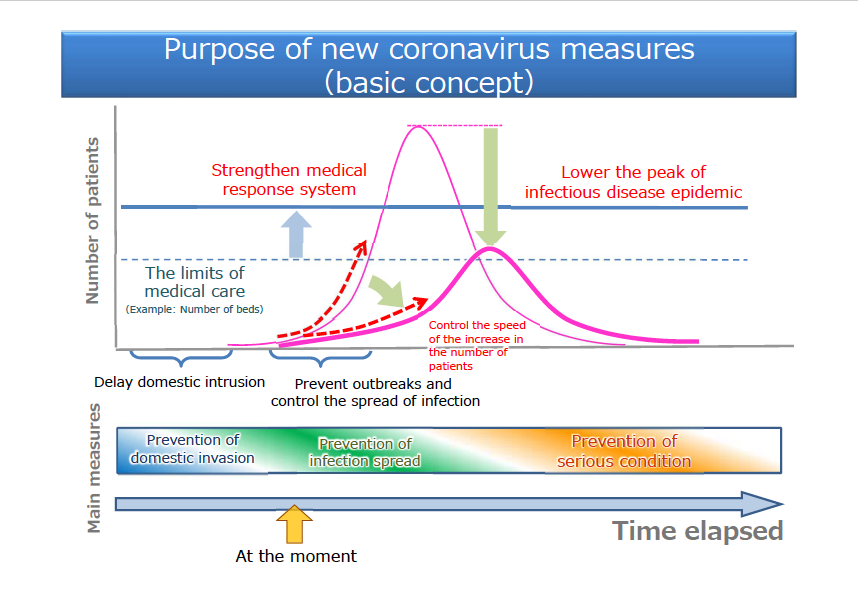Satoshi Ikeuchi, Professor, Religion and Global Security, University of Tokyo
The world is gradually transitioning from the stage of “shock and awe” against the plague to the stage of “corona fatigue.”
In the initial months after the contagion started to overflow from China, stringent measures were required and enthusiastically accepted.
The most prominent slogan raised all over the world during that period has been “flatten the curve.”
“Flatten the curve” was the best-known catchphrase which succinctly summarizes the common action needed for citizens to take in preventing the society critically damaged and destroyed by COVID-19 diseases.
Flattening the curve means slowing the pace of the spread of the virus, delaying the peak of the infection and lowering the number of infected cases at any given moment.
Suppressing the number of patients infected simultaneously is crucial in mitigating the burden on hospitals and medical care system which have to be kept spared for the people who are the most critically ill.
As citizens of the country make the utmost effort to delay the peak and control the speed of infections, postponing the peak of the infections as long as possible, researchers in medical and pharmaceutical sectors are given precious time for developing vaccines and treatments to this unknown virus as well as strengthening the capacity of medical response system.
Diminishing overall cases of infections is critically needed for preventing the breakdown of the public health infrastructure.
In Japan, a sheet of paper entitled “Basic Concept” of the measures against the new virus was announced and reliesed to the media in February 23, in which the “Flatten the Curve” concept was described in one figure.

Since then, people of Japan has been striving hard to comply with this guideline and stick to flatten the curve of infections. It was relatively successful so far, suppressing the number of deaths caused by COVID-19 in several hundreds, not in thousands or tens of thousands in the unfortunate cases in some industrialized nations.
There has been, however, creeping signs of fatigue obviously felt among the citizens in Japan. The question is how long it will continue. More precisely said, people are anxious to know how long we have to wait until we know how long we have to wait.
People can be united for the one purpose of preserving the society and could pay the heavy price both economically and psychologically as long as the goal is seen and believed to be tenable.
If people start to sense that they have been deceived into a long marathon race while being falsely informed as if they are taking part in the short-distance sprinting, the national unity and the universal compliance could crumble.





